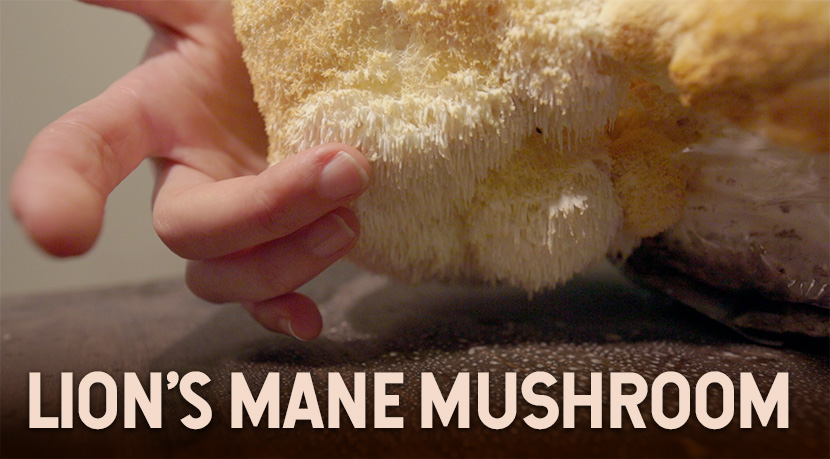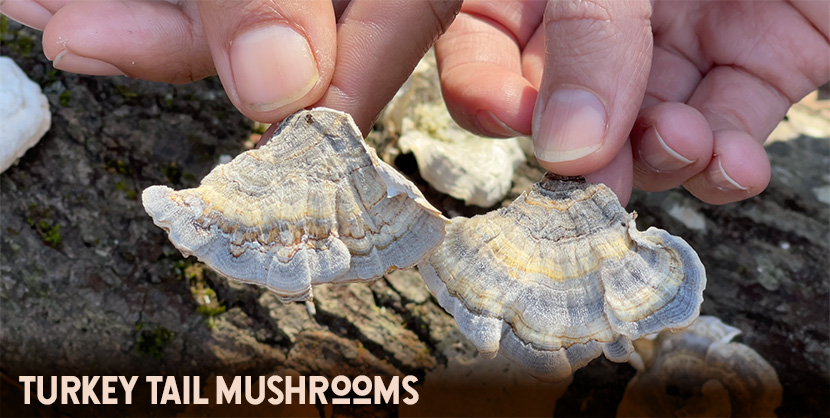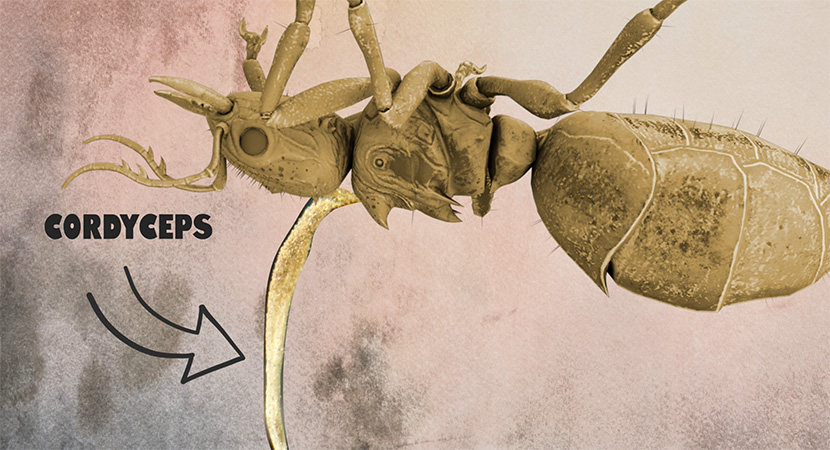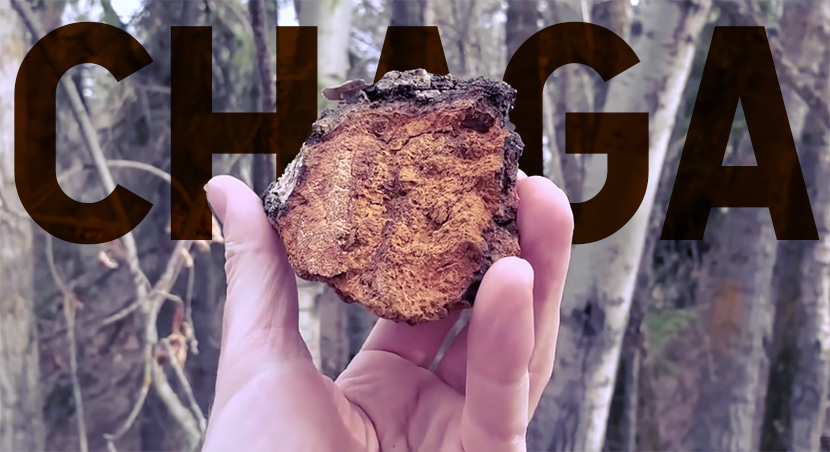5 Medicinal mushrooms you should eat

The world of fungi is incredible, and not just in how cool they are biologically (check out more about that here), but for use in our diet and in medicine! There are many types of fungi with a lot of benefits, but today we are going to talk about 5 medicinal mushrooms that really stand out.
What is a mushroom?
Though many people might not be aware of this, a mushroom is actually just the fruiting body of a fungus. While the rest, which is long and root-like – called the mycelium, is usually invisible to us, integrated into live trees, rotting wood, or underground. Mushrooms come in all shapes and sizes and range from being edible and delicious, to potentially deadly, and many are very good for you.
Medicinal Mushrooms
As food, medicine, and even tools humans have used fungi for thousands of years, appearing in folklore, on our dinner plates, and now in our modern medicine cabinets or daily routines. Today, we are seeing a resurgence of interest and a desire to improve and recuperate old knowledge about the uses of medicinal mushrooms for overall quality of life and to treat specific problems and illnesses.
Before we dive into our top 5 medicinal mushrooms for you to try, it is important to note that you really shouldn’t eat mushrooms raw, firstly because it could make you sick, and secondly because one of the key beneficial compounds in many medicinal mushrooms, the beta-glucans, do not break down in a way that we can absorb them unless the mushroom is cooked or heated up in water – made into tea essentially.
So, what are the best medicinal mushrooms for health? Here we have 5 examples, with more details down below!
Our 5 best medicinal mushrooms are
- Lion’s mane
- Turkey Tail
- Cordyceps
- Chaga (not technically a mushroom but we will explain that below)
- Reishi
Lion’s Mane, Hericium erinaceus

Lion’s mane is a very odd looking and unbelievably powerful medicinal mushroom. It has been shown to have a huge range of benefits, with studies to back it up (here too!) and no known side effects. Lion’s mane, known as the “Brain boosting mushroom”:
- Is full of Antioxidants
- Is anti-inflammatory
- Can treat ulcers
- Can reduce anemia
- Helps cancer patients live longer
- Can reduce depression and anxiety
- Improves cognitive function
- Promotes nerve growth
- Helps prevent dementia and alhziemers
- Can actually help repair the myelin sheath in nerves in both the brain and spinal cord
The last couple might seem far-fetched at first but the hericenones and erinacines in lion’s mane have been shown to improve nerve function and even help rats recover more quickly from spinal injuries!
Turkey Tail, Trametes versicolor

Turkey Tail is very common in North America and other parts of the world, so common in fact that it is kind of known as a “weed” to people who are into fungi foraging – but that doesn’t make it any less special. In fact, since this mushroom is so common it means that it has been pretty well-studied in many parts of the world. Turkey tail is a bracket polypore mushroom, meaning it grows directly off of wood, kind of like a little shelf, and instead of the classic “gills” that we are used to seeing in many mushrooms, they have many tiny pores on the underside that will release spores – hence the poly, meaning many, and pore.
Turkey Tail is most often made into tea, as it is much too hard to eat and this tea has many benefits, such as:
- Improving gut health
- Boosting the immune system
- It is antimicrobial
- It can help treat diabetes symptoms
- Ancient (especially Asian) and modern medicine uses it for cancer treatment
The other great news is there are little to no side effects with frequent use, though you could experience a slight yellowing of your finger nails, this goes away once you take a break.
Cordyceps, particularly C. militaris

Cordyceps is a genus of fungi that is famously known for its ability to take over the bodies of insects, sometimes forcing them to climb to higher heights, later killing the insect and sprouting out from its head and later releasing spores to start the cycle all over again, however, they do not have a zombie-inducing effect on humans and they actually have some great benefits.
There are many species of Cordyceps in the world, one of the famous ones being Cordyceps sinensis, sometimes called caterpillar fungi, which is harvested from the heads of caterpillars in the Himalayas and is the most expensive mushroom in the world, due to its rarity and incredible capacity as a performance enhancement drug.
The one that we recommend trying is a bit easier to find, and doesn’t actually have to be grown on insects, C. militaris. C. militaris is a great supplement for:
- Exercise performance
- Cardio fitness
- Increasing oxygen capacity
- Boosting the immune system
You can learn more about using cordyceps fungi here!
Chaga, Inonotus obliquus

Chaga is a fungi which can only be collected in the wild, and while not technically not a mushroom (because we don’t use the fruiting bodies but the mycelium itself), it has made our list for fantastic fungi for your health.
Chaga ‘mushrooms’ as they’re sometimes called are really a hardened mass of chaga mycelium and birch wood, and yes it can only be birch, that is found in Canada, the USA, Northern China, and Russia. It is normally found higher up on the trees and can take from 3-5 years to grow, possibly more. For this reason, if you are out foraging this yourself always remember to respect the unspoken “foragers code” and leave some behind for others, and for the ecosystem itself.
Now, it is important that chaga grows on birch, because the most beneficial compound, Betulin, actually comes from the birch itself and is integrated into the mass. Once you find chaga, it has to be axed or sawed off and it is normally made into a tea. Chaga is great because it:
- Is really high in antioxidants
- Offers immunity support – again because of those awesome beta-glucans
- Promotes healthy gut-bacteria balances for improved gut health
Reishi, Ganoderma lucidum

Reishi is a mushroom of many names, being referred to as “reishi,” varnished conch, king of mushrooms, the mushroom of immortality, and more. Reishi is another hard mushroom that is normally put in supplements or made into tea, despite the fact that it can be quite bitter. Reishi has many great uses, to name a few it is known to:
- Aid in sleeping
- Stimulate the immune system
- Promote cardiovascular health
- Reduce anxiety
- Balance hormones
- Prevent liver damage
- Reduce inflammation
- And more
Though this is not even close to a complete list of medicinal mushrooms you can use, it is a great start for those looking to improve their life through natural remedies like medicinal mushrooms!
A note about using medicinal mushrooms
Medicinal mushrooms are great, but it is important to remember that they aren’t a quick fix for ailments but instead something that with regular use can help you to feel better. They are also often meant to be taken in cycles, with breaks in between. Last but certainly not least: you should always take caution and do your own research before trying out natural remedies like medicinal mushrooms; there are very few reported side effects from most medicinal mushrooms, but for example mixing them with certain medications could cause problems and many are not recommended to take when pregnant, so just be sure to talk to your doctor if you have any doubts!
Disclaimer: The StoneAgeMan blog is for informational purposes only and does not constitute medical advice. We are not responsible for any actions taken based on the information provided. Always consult a healthcare professional before using fungi for medicinal purposes.

